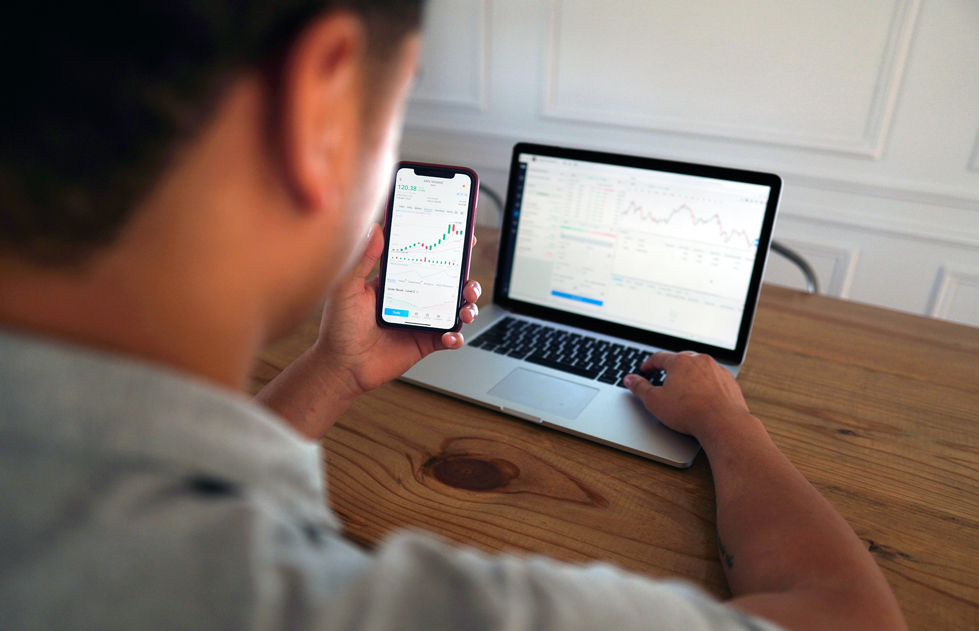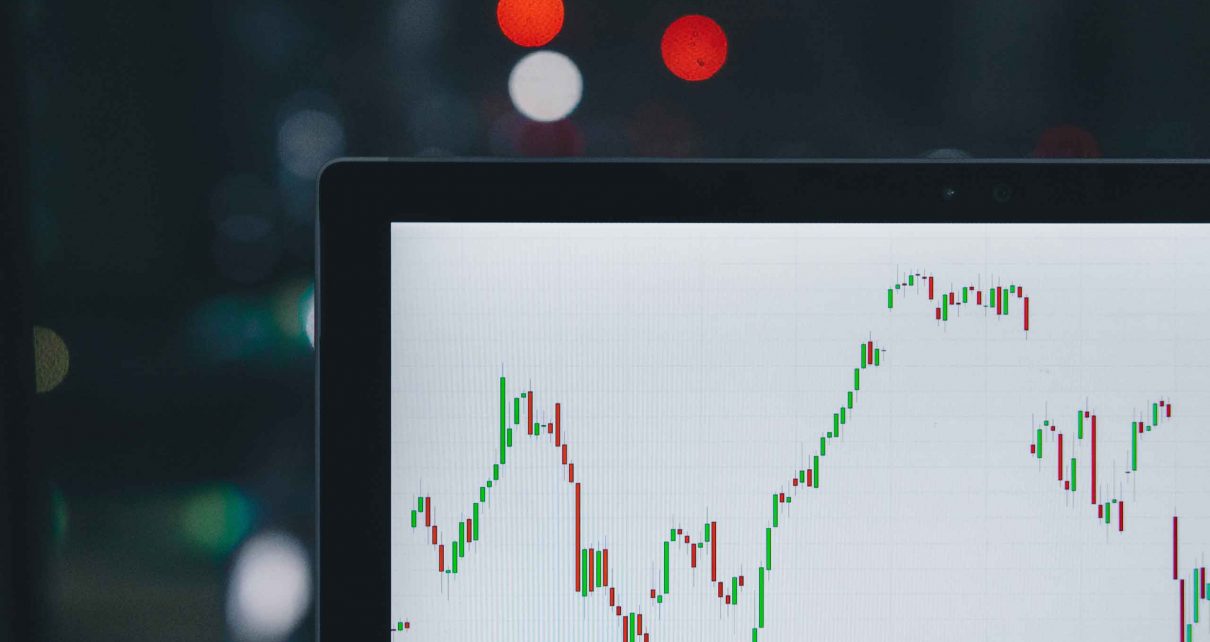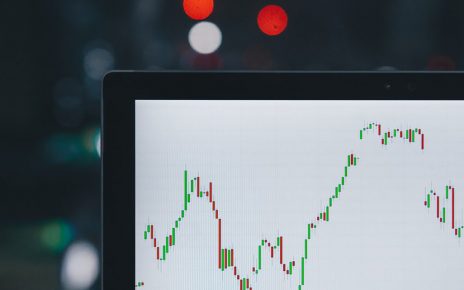Are you looking for an opportunity to achieve financial independence and then some? You are on a good path, exploring what the world of finance has to offer. There are several ways to enter this landscape and bulletproof your financial future. One of the more popular methods is learning futures trading basics and exploring this area.
The question here is, how do you get started in something that you have no experience? Futures trading might be a buzzword in the financial landscape, but you still need some knowledge in the basics to succeed in it.
In this article, we decided to steer away from general advice. Instead, we will dig deep into the futures trading basics so that you can successfully add futures to your investment portfolio.
Futures Trading: A quick recap

Before we go into futures trading basics, we must ensure that you understand what a futures contract and future trading are.
A futures contract is a legally binding agreement between two parties to buy or sell an asset at a pre-agreed price at a future date. We are talking about a standardized agreement here. One party in the contract is a buyer – the other is a seller.
Every futures contract has an expiration date. At this date, the seller must sell, and the buyer must purchase the underlying commodity at the pre-agreed price regardless of the actual cost of the derivative in the market. Of course, there are times when traders or companies can sell their contracts before the expiration date.
Quite often, entities use a futures contract because it protects them from substantial price swings in the market. They trade in underlying derivatives markets because their business requires it. These parties are called hedgers.
However, what makes the futures market attractive are investors and speculators – in other words, you. You can buy futures agreements and make money from the underlying commodity price changes. For instance, if the underlying commodity price rises, the contract you’ve just bought becomes substantially more valuable. You’ll be able to sell it for more and make a profit in the futures market.
The underlying commodity is a board category. You can trade futures of physical products, raw materials, bonds, precious metals, individual stocks, shares of ETFs, and even currencies and cryptocurrency.
Now, since we are on top of the niche-specific terminology, let’s go through futures trading basics.
Futures trading basics

Investing in futures contracts is an engaging and exciting way to make money. Here are few things to help you get started in futures trading.
Know your futures contracts
There’s no better way to start as a futures trader but to build a healthy knowledge foundation. The best way to do it is to know your future contracts inside and out. After all, you’ll be buying and selling futures contracts. You won’t make it as a trader if you don’t know the “goods” you are selling.
Future contracts contain different parameters. You’ll need to pay close attention to all the following parameters if you want to step up your game:
- Every futures contract is quoted in one currently, so make sure to check which one it is;
- Futures contracts denominated in a single currency unit, so check this one as well;
- The quality of the underlying commodity;
- The quantity (pay close attention to the unit of measurement) of the underlying commodity to be sold or bought under the contract;
- The expiration date of the futures contract – as a trader, you want to trade the contract before the official expiration date;
- The outline of trade settlement – cash settlement or delivery of underlying commodities, many futures traders prefer cash settlement over physical delivery because they don’t want to have anything to do with signing for receipts and taking care of storage facilities for physical goods.
Be aware of futures trading risks
You need a substantial amount of money to enter the futures market. Whether you decide to borrow the money or use cash from your piggy bank, you should be aware of the risks.
A great thing about the futures market is that even a relatively small price movement can generate substantial profits. However, many markets are volatile. If the markets shift in the opposite direction to what you expected, you can quickly lose what you invested or even more.
If you take a look at the securities trading world, you’ll be able to see that margin and leverage rules are far less restricting in the futures market. Some futures brokers allow leverage up to 20:1. It can be attractive in terms of how much money you can potentially make.
On the other hand, if you don’t come through and the price changes only 2% in the opposite direction, you stand to lose 40% of your investment if you are leveraged 20:1.
There is also a risk of not meeting the minimum pattern day trader (PTD) criteria. The PTD minimum criterion is to make at least three days trades in five business days, and they amount to more than 6% of total trades in your account. However, every stock market has different DTP regulations, meaning that you don’t necessarily have to comply with the regulation.
Choose a reliable broker
You can’t just go and invest in a futures contract by yourself. You can’t invest in any financial instrument by yourself. Given that a futures contract is a financial instrument, you’ll need to choose and work with a reliable futures broker. Future brokers have access to the markets and exchanges, and that’s the only way for you to streamline your investment strategy. How do you pick up a good broker, though?
There are some aspects every futures trader should know when picking up a broker:
- Reliability – do research online to check the broker’s reputation, look for social proof, articles in relevant magazines and on blogs, and check how long has the broker been around;
- Regulation – make sure that the broker complies with rules and regulations to completely mitigate the risk of ending up on the other side of the law;
- Fees – when it comes to fees, not all brokers are the same; before you pick a broker, make sure that you are comfortable with the cost, which should be at industry average if not below;
- Available trading platforms – not all brokers offer access to the same trading platforms; a good broker will provide you with access to several reputable platforms and point out which one is the recommended one for you;
Futures trading hours
Trading hours in stock and futures markets are not the same. For instance, stock exchanges are open from 9:30 AM to 4 PM, Eastern time, from Monday to Friday. The electronic futures market stays open significantly longer. The electronic futures market remains open 23 and half hours a day from Sunday afternoon to Friday afternoon.
The electronic futures market will be open 16 hours every day, while the stock exchanges are closed. During this time, future prices can’t be rooted in the developments on exchanges. Instead, traders refer to global news and their hunch to project the indexes. But the indexes will remain unknown until the next day at 9.30 AM when exchanges open.
Become a funded trader: Yay or nay!

In some jurisdictions, you can open an account for $500 or even $100. However, the odds that you can become a successful futures trader are reduced if you don’t have enough capital.
According to studies, around 90 percent of traders are not successful, and the rate of profitability is green for just 10 percent of investors. Vantage Point Trader’s analyst Cory Michael even says that “only 1 percent of day traders make money”.
The data is undoubtedly determined by the trader’s psychology, skills, and education and the amount of money the investor has to operate. The more money, the fewer risks the trader should take to earn decent money.
Long story short, you can become profitable with a small portfolio, of course, but the chances are that it will take you a lot of time to make your dream come through – become a profitable independent trader.
That’s why many traders explore various options to become a funded trader. There are many funding ways out there, such as high-interest loans, prop firms, and hedge funds. Each one of these comes with certain downsides, some of which are very limiting – low payout, high repayment risks, lengthy track records requirements, too complicated trading process, and so on.
A viable alternative is to become a funded trader. As a financed trader, you will enter a partnership with somebody who provides the money, and you won’t have to risk your money. But with so many funded trading programs out there, how do you tell which one is good?
A funded trading program should have:
- Easy process to get funded
- Short turn-around time
- Shared risks
- Access to educational material
- Social trading
Trading platforms such as OneUpTrader deliver a funded trading program with a vast funding network and funding sources. The platform simplifies funding with no middle man, hidden fees, or fine print. More importantly, you will have access to tons of educational material, access to fellow traders’ communities, and the ability to choose from over 15 world’s top trading platforms.
Check funded accounts provided by OneUp Trader
Futures trading simulator: Practice makes perfect
Are you familiar with the concept of futures paper trading? It refers to the process of investing in and trading futures contracts in a simulated market environment. It practically enables you to assess your knowledge in futures contracts and test your futures trading strategies risk-free.
Futures paper trading, also known as demo accounts, is a perfect opportunity for beginners to learn essential strategies and experiment with new approaches. It also creates a safe environment for understanding, testing, and seeing at work some of the most advanced trading strategies such as futures spread trading. OneUpTrader has a demo account, so you can check it out.
Pros and cons of futures trading
Learning about the futures trading basics is not enough. You also need to be aware of the pros and cons of futures trading. It will help you better understand the specificities of this financial niche.
Pros of futures trading
- Investors can substantially profit from speculating the direction of the price of underlying commodities.
- Investors often don’t have to pay a futures contract’s total price; many brokers only require a deposit.
- The futures market is diverse and active, thus creating many opportunities for traders.
Futures day trading does not follow the day trading pattern like stocks or options.
Cons of futures trading
- All futures use the leverage, and investors risk losing more than the initial margin if prices shift in the opposite direction.
- Many companies hedge the price of their deliverables to protect themselves from significant price movements.
Conclusion
Hopefully, our guide shines some light on features trading basics. You can succeed even with minimal knowledge and experience when you have the right kind of support and secure zero-trust data.
Not to mention the access to top-line tools to help you practice, learn, execute, manage, and assess your trades. Given this niche’s nature, we hope you understand that financial freedom is possible but also tricky. The more you learn and practice, the better you’ll get.
In the end, we do hope that this guide can serve as motivation for you to start trading. Of course, trading is a risky game, and one should learn and practice before going live.
A perfect trading partner, such as an investment platform like OneUp Trader, offers futures trading basics and more educational material, trading tools, and even funds to help you achieve your financial freedom. You can feel safe while you pave your way to success. Happy trading!

References and bibliography used in this article
- Basics of Futures Trading by the CFTC
- Futures by Investopedia
- Learn to trade Futures and Options by the CME Group





